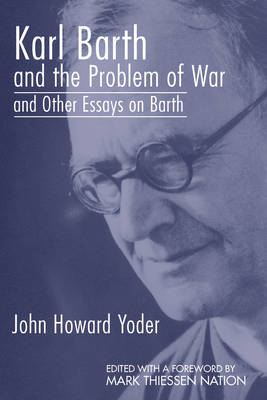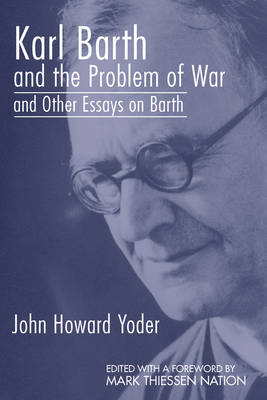
Bedankt voor het vertrouwen het afgelopen jaar! Om jou te bedanken bieden we GRATIS verzending (in België) aan op alles gedurende de hele maand januari.
- Afhalen na 1 uur in een winkel met voorraad
- In januari gratis thuislevering in België
- Ruim aanbod met 7 miljoen producten
Bedankt voor het vertrouwen het afgelopen jaar! Om jou te bedanken bieden we GRATIS verzending (in België) aan op alles gedurende de hele maand januari.
- Afhalen na 1 uur in een winkel met voorraad
- In januari gratis thuislevering in België
- Ruim aanbod met 7 miljoen producten
Zoeken
€ 44,45
+ 88 punten
Uitvoering
Omschrijving
A passionate opponent of Nazism, Karl Barth was required to serve in the Swiss army. At the age of 54, he helped guard the Swiss border at Basel from German intruders. Some would suggest this is all we need to know in order to understand Barth's views on Christianity and war. John Howard Yoder begged to differ. Karl Barth and the Problem of War is an essay in which Yoder articulates the views of his former teacher on war, these views comprising a position he refers to as chastened non-pacifism. Through a rigorous examination of Barth's ethical method, Yoder seeks to show how the logic of Barth's basic theological commitments makes him even closer to pacifism than is often noticed. Here five additional essays, three of which have never before been published, join this long essay. These essays offer further reflections on Barth's chastened non-pacifism, as well as offering some of Yoder's fruitful use of Barth's theology for social ethics.
Specificaties
Betrokkenen
- Auteur(s):
- Uitgeverij:
Inhoud
- Aantal bladzijden:
- 200
- Taal:
- Engels
Eigenschappen
- Productcode (EAN):
- 9781592443574
- Verschijningsdatum:
- 26/09/2003
- Uitvoering:
- Paperback
- Formaat:
- Trade paperback (VS)
- Afmetingen:
- 155 mm x 229 mm
- Gewicht:
- 294 g

Alleen bij Standaard Boekhandel
+ 88 punten op je klantenkaart van Standaard Boekhandel
Beoordelingen
We publiceren alleen reviews die voldoen aan de voorwaarden voor reviews. Bekijk onze voorwaarden voor reviews.









